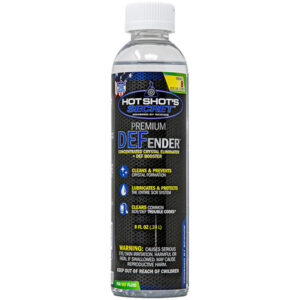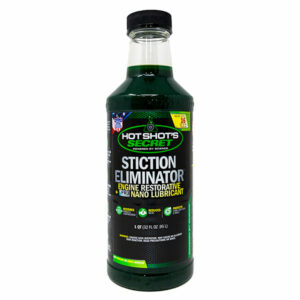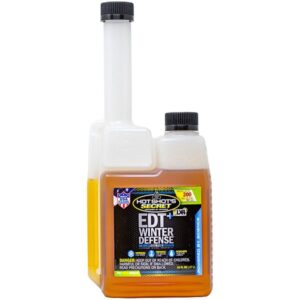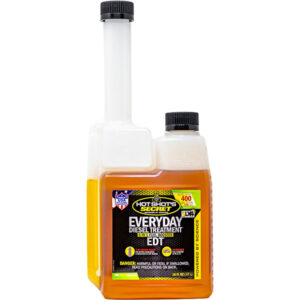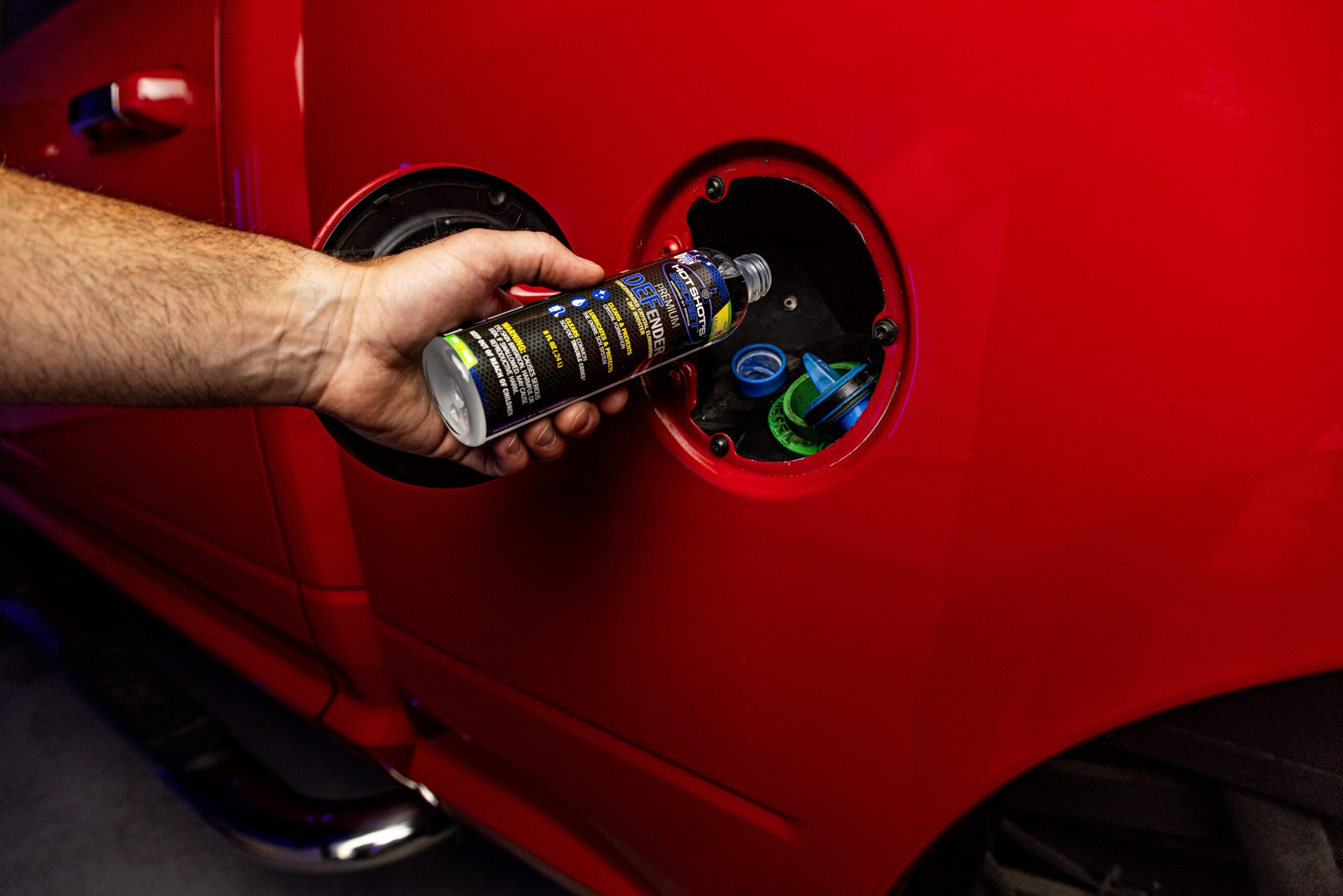
Diesel exhaust fluid (DEF) is essential to your selective catalytic reduction (SCR) system. This fluid converts nitrogen oxides into less harmful gases like nitrogen gas and water vapor, and consists of blended automotive-grade liquid urea (32.5%) and deionized water (67.5%).
DEF crystal buildup is one of these systems’ most common — and costly — problems. This article will examine this kind of crystallization, its causes, and how to solve it.
What Is DEF Crystallization?
DEF crystal buildup occurs when diesel exhaust fluid evaporates or degrades. Water evaporates from the liquid, leaving behind concentrated crystallized urea. Crystal deposits form in various system components, causing problems like:
- DEF injector clogging: When crystals form in the injectors, they block the nozzles or alter the spray pattern, which is essential for efficiency.
- Sensor malfunctions: Crystal buildup around sensors can cause sensor malfunctions, negatively affecting SCR performance.
- General buildup: Crystallization also occurs in other parts of the system, reducing efficiency, clogging lines and causing secondary problems.
SCR system crystallization usually takes the form of white crystals in the DEF tank. If you see these deposits, it’s time to clean your DEF tank.
Why Does DEF Crystallize?
DEF crystallization usually occurs due to one of a few reasons, including:
Evaporation and Heat Exposure
Evaporation is one of the most common causes of crystallization. Exposure to excessive heat (over 86°F) may also degrade the DEF and cause crystallization.
Contamination
Contaminated DEF, which may contain debris like dust, rust or other contaminants, allows urea crystals to form more easily. It may also cause abrasion and secondary problems, exacerbating the crystallization problem.
Low-Quality Fluid
Lower-quality diesel exhaust fluid often lacks the resilience and durability of premium products. It may also be more sensitive to evaporation and heat exposure.
Improper Storage
Proper storage is essential to avoid evaporation and degradation. Storing DEF in hot, moist environments encourages the fluid to break down and crystallize.
Repeated Freeze-Thaw Cycles
While freezing may not inherently degrade DEF fluid, repeated freezing and thawing may separate the water from the urea, encouraging evaporation.
Effects of DEF Crystallization on the SCR System
DEF crystallization can have significant adverse effects, including:
- Clogged fluid lines and injectors
- Malfunctioning system sensors
- Reduced efficiency and performance
- Damaged SCR catalytic converters
- Expensive repairs and lengthy downtime
The effects are severe enough that engineers are working on anti-crystallization nozzles for DEF injectors and other similar technology. Knowing how to prevent crystallization is essential to your vehicle’s health and longevity.
How to Prevent DEF Crystallization
Preventing DEF crystallization is typically straightforward if you follow a few basic guidelines.
Prioritize DEF Quality
Always use premium-quality DEF to avoid diesel exhaust fluid deposits. Lower-quality fluids are susceptible to crystallization and may evaporate more quickly. Some types are also more heat-sensitive.
Keep the DEF Tank Full
To reduce evaporation, ensure you always keep your vehicle’s DEF tank topped up. Air and space in the tank facilitate evaporation and, therefore, crystallization. Keeping the tank full reduces evaporation potential, maintaining the fluid quality.
Store Fluid Correctly
Store all your engine fluid in a safe, secure location to avoid DEF crystal buildup. To maintain the fluid and prevent degradation, keep it:
- Out of direct sunlight
- In temperatures between 12°F and 86°F
- In airtight, securely closed containers
This storage procedure reduces evaporation potential, eliminates contamination and maximizes fluid lifespan.
Implement Clean Practices
DEF contamination happens when dust, rust or other debris lands in your DEF tank or fluid. This expensive problem leads to crystal formation, abrasion and other forms of damage. Unfortunately, you’ll need professional help draining, cleaning and refilling a contaminated system.
By storing your fluid in an airtight container and cleaning the cap and DEF tank before adding fuel, you can keep contaminants to a minimum.
Use High-Quality Fluid Additives
Water can evaporate from the fluids in your vehicle’s systems, causing crystal formation. A premium-quality DEF additive helps maintain your system by dissolving existing crystals and preventing new crystal formation.
How Premium DEFender™ Helps Prevent Crystallization
Hot Shot’s Secret Premium DEFender™ eliminates existing crystal deposits, prevents future crystallization and lubricates the entire system by:
- Lowering the DEF’s freeze point: While freezing may not degrade engine fluid, repeated freeze cycles can separate the water from the urea, encouraging evaporation. By lowering the fluid freeze point, Premium DEFender decreases the likelihood of freezing, eliminating this problem.
- Dissolving crystal buildup systemwide: Premium DEFender has a proprietary formulation that dissolves urea crystals from the tank, nozzles and other components. This ongoing process eliminates future crystals before they can form.
As an all-in-one solution, this product ensures consistent DEF flow, good spray patterns and more.
FAQs About DEF Crystallization
Get answers to your questions about DEF crystals fast with these FAQs.
Is DEF crystallization normal?
No, DEF crystallization isn’t normal and can indicate a DEF fluid or system fault. It can be a severe condition, and scientists have invested much effort in developing an assessment method to monitor crystallization.
Can crystallization damage my SCR system?
Yes, crystallization can damage your vehicle’s SCR system. One of the most common effects is DEF injector crystal problems, where crystals clog the injectors. They may even clog lines or other components to the point where the system malfunctions. Sensor malfunctions are another typical result of crystal buildup in SCR systems.
Can I clean DEF crystals myself, or do I need professional service?
With the right product, you can absolutely clean DEF crystal buildup yourself. The only time you’ll need a service is if the SCR system contains contaminants like rust, dust or debris, in which case the system needs purging. For a standard case of crystal buildup, invest in a targeted solution like Premium DEFender.
Does DEF crystallization mean the fluid is bad?
Yes, DEF crystallization means the fluid has degraded. If you see diesel exhaust fluid deposits or crystals, discard the liquid and purchase a new, high-quality fluid for your vehicle. For white crystals in your DEF tank, use a high-quality cleaner and additive to dissolve the crystals and prevent future crystallization.
Solve Your DEF Crystallization Problems for Good
Unlike more severe DEF and SCR challenges, like electronic faults, you can prevent SCR crystallization. Try Hot Shot’s Secret Premium DEFender to protect and preserve your diesel vehicle’s emission system. It will dissolve existing crystals, prevent crystal formation and improve lubricity!

